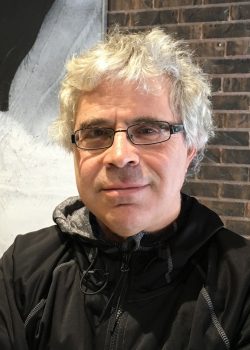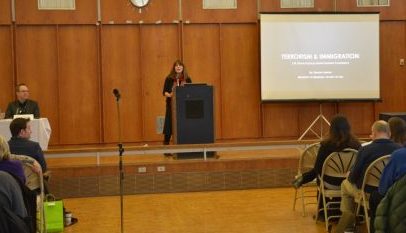Faculty members share research in community
Law professors active in giving lectures to both legal profession and the public
Robson Hall faculty members have been actively sharing their research in the legal, academic and broader communities. Far from allowing their research to gather dust on shelves, the University of Manitoba’s Faculty of Law professors including Drs. Bryan Schwartz, Shauna Labman, Michelle Gallant and Amar Khoday recently gave presentations at different events.

Dr. Bryan Schwartz
Dr. Schwartz, who holds the Asper Chair in International Business and Trade Law, spoke to the Labour Law subsection at the Midwinter Bar Association conference on January 18 on the subject of workplace discipline for an employee’s off duty conduct. Dr. Schwartz explored the constitutional and quasi-constitutional (privacy law, human rights law) dimensions of the issue, particularly in terms of off-duty free expression, and made some proposals for legislation, including changes to The Human Rights Code, to better protect both free expression and privacy.
Drs. Michelle Gallant, Shauna Labman and Amar Khoday spoke on January 25 at the J. W. Dafoe Political Studies Students Conference 2018.
As part of a panel on Terrorism around the World, Dr. Labman laid the groundwork for discussion explaining how the failure to admit refugees to a country as a result of fear that they will bring terrorists into a nation’s midst, would only result in growing unrest in conflict areas. As part of her argument, she identified legislation in place to protect Canada from admitting individuals who may be of concern.

Dr. Shauna Labman at the J.W. Dafoe 2018 Conference
On the same panel, Dr. Gallant shared insights from her research on international finance, regulation of banks, tax avoidance and money laundering to show how the tendency to blindly apply laws governing criminal finance to terrorism is not always appropriate. She suggests that such solutions are “grossly misconceived to put far too much weight on the finance of terrorism” as the best way to starve terrorism. Rather, she advocated for other ways to deal with terrorism.
Speaking on a panel addressing Counter-Terrorism and Civil Liberties, Dr. Khoday looked at the broad scope of anti-terrorist legislation located in U.S. immigration and refugee law in his talk titled “No Excuses: Should Asylum Seekers Be Barred From Accessing Refugee Status When Compelled to Provide ‘Material Support’ To Terrorist Organizations?” Focusing on a 2015 U.S. federal court case concerning an asylum-seeker, he examined how such legislation renders inadmissible those who are compelled to give “material support” to terrorist organizations against their will. The fact of duress offers no exception to inadmissibility. Such broad clauses found in U.S. legislation undermine the broader human rights purposes underlying the 1951 Convention Relating to the Status of Refugees and the 1967 Protocol Relating to the Status of Refugees. Dr. Khoday had previously written on a similar theme in a 2015 blog post on the Migration Law Research Cluster Blog site.






